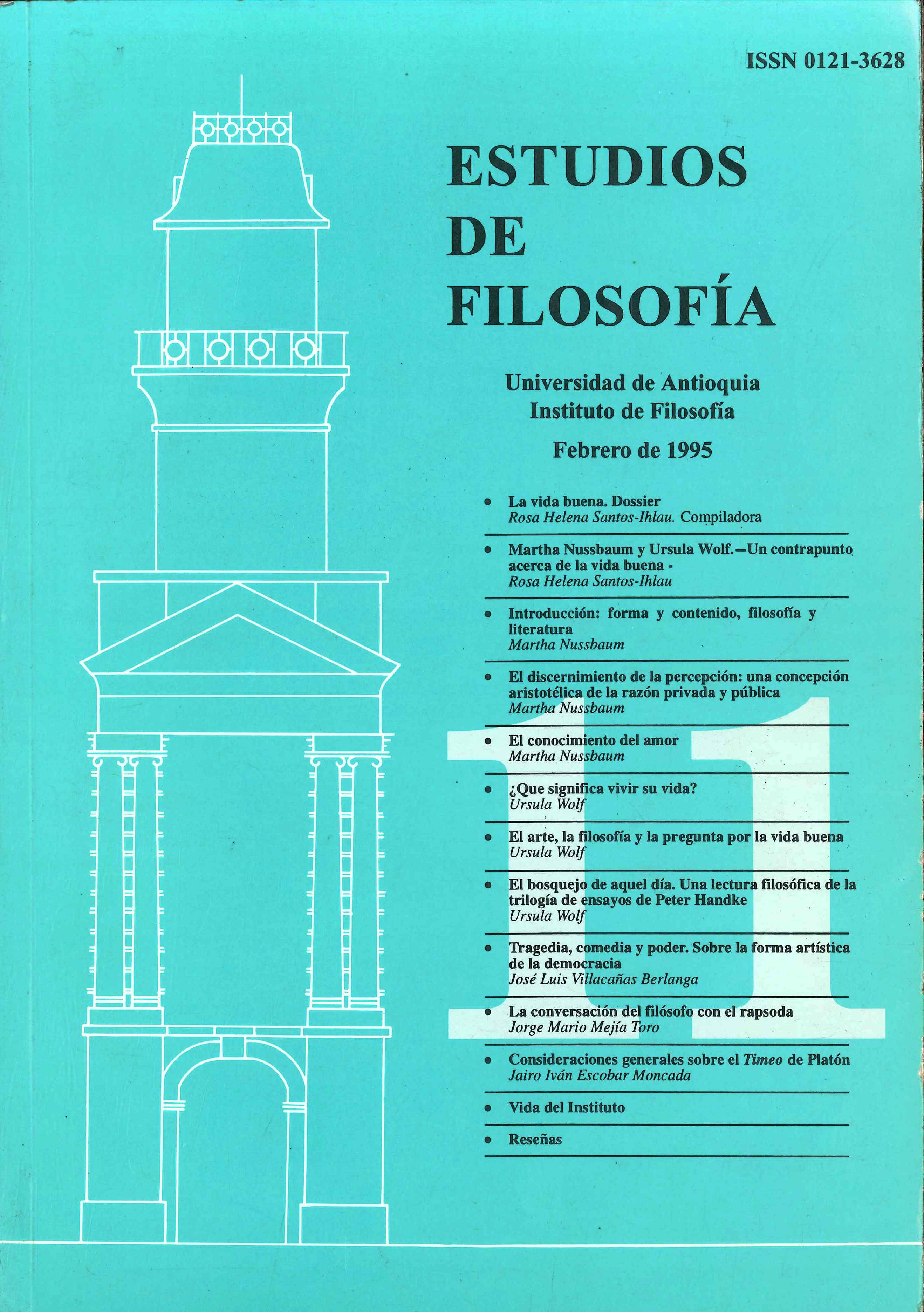The knowledge of love
DOI:
https://doi.org/10.17533/udea.ef.338795Keywords:
Knowledge of love, narrative, philosophyAbstract
Within the scope of a narrative context, the viewpoint of this paper is to broach the issue of how to attain knowledge about our love on the basis of a comparison between the sceptical and distrustful behaviour of the reader of philosophy and the open and trusting demeanour of the reader of narratives. On the one hand philosophy enables the idea of love to be clarified by means of an analysis of concepts, thereby leading toa discovery of what love truly is in the realm of the soul and how knowledge thereofmay take shape. On the other narrative underlines how the complex character and multiple forms of those elements treated together with the temporal evolution of what is narrated are not actually present in explicit and reflective theories. Martha Nussbaum claims that the human heart needs active reflection and that so as to allow a space for love stories to unfurl, philosophy should be more literary and keep a tighter bond with narrative and thus contemplate respectfully the latter's mystery and open endings.
Downloads
Downloads
Published
How to Cite
Issue
Section
Categories
License
Copyright (c) 1995 Martha Nussbaum; Rosa Helena Santos-Ihlau

This work is licensed under a Creative Commons Attribution-NonCommercial-ShareAlike 4.0 International License.
Authors who publish with this journal agree to the following terms:
1. The Author retains copyright in the Work, where the term "Work" shall include all digital objects that may result in subsequent electronic publication or distribution.
2. Upon acceptance of the Work, the author shall grant to the Publisher the right of first publication of the Work.
3. The Author shall grant to the Publisher a nonexclusive perpetual right and license to publish, archive, and make accessible the Work in whole or in part in all forms of media now or hereafter known under a Creative Commons Attribution-NoCommercia-ShareAlike (CC BY-NC-SA 4.0), or its equivalent, which, for the avoidance of doubt, allows others to copy, distribute, and transmit the Work under the following conditions: (a) Attribution: Other users must attribute the Work in the manner specified by the author as indicated on the journal Web site;(b) Noncommercial: Other users (including Publisher) may not use this Work for commercial purposes;
4. The Author is able to enter into separate, additional contractual arrangements for the nonexclusive distribution of the journal's published version of the Work (e.g., post it to an institutional repository or publish it in a book), as long as there is provided in the document an acknowledgement of its initial publication in this journal;
5. Authors are permitted, and Estudios de Filosofía promotes, to post online the preprint manuscript of the Work in institutional repositories or on their Websites prior to and during the submission process, as it can lead to productive exchanges, as well as earlier and greater citation of published work (see The Effect of Open Access). Any such posting made before acceptance and publication of the Work is expected be updated upon publication to include a reference to the Estudios de Filosofía's assigned URL to the Article and its final published version in Estudios de Filosofía.















